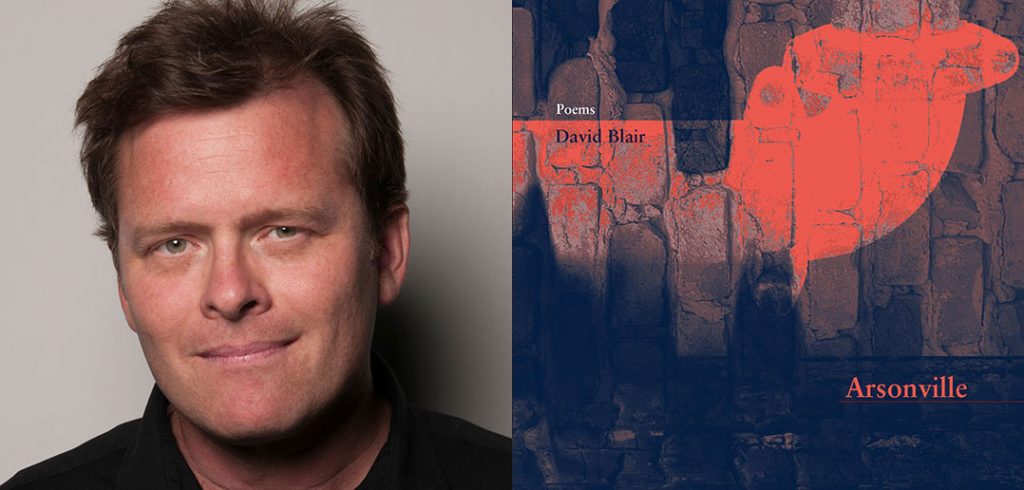On Oct. 20, Poets Out Loud will feature Fordham alumnus David Blair at its second reading of the semester. Blair’s latest book, Arsonville, is being published this week by New Issues Poetry & Prose, Western Michigan University Press.
Your new book is a collection of poems. What made you choose Arsonville as the title?
I live in Somerville, Massachusetts, about a mile and a half from the Boston city line. When I moved to the area 20 years ago, Somerville had a horrible nickname: Slummerville. In the years that I’ve lived here, the town has gotten more and more gentrified, and I think my title captures something of the juxtaposition between the old city and the newer city.
Arsonville also speaks to me about global warming and environmentally destructive and other self-vexing aspects of the country as a whole. About a year after I decided the book was going to be called Arsonville, there was a big outbreak of arsons in Somerville.
You studied philosophy at Fordham. How does philosophy contribute to your poems?
I learned to be a close and careful reader in both my philosophy classes and my literature classes. The first great philosophy class I took was on Kierkegaard and Gabriel Marcel with Dr. Kenneth Gallagher, when I was a freshman.
All of my poetry friends at Fordham took Father John Dzieglewicz’s classes on the Symbolist Movement. He would actually play bits of Debussy on the piano when he taught Verlaine. His sense of poetry as being un-siloed and related to all of the other arts, music in particular but also painting, made a huge impression on me.
The philosophy core was heavy on Aristotelian naturalism. The importance of the physical world and sensation that I found in my partial reading of Aristotle and Aquinas pre-disposed me to favor image-driven and concrete modernist poetry by William Carlos Williams and a similar tendency in Walt Whitman. New York City is the ideal place to read and discover poetry.
Comparisons are sometimes made between you and dead poets, like Frank O’Hara. Who’s still alive that you admire?
There are an enormous number of amazing poets right now. Living in the Boston area, I’ve gotten to hear poets who live around here. If I had to choose one poet and one poem, I would say to read Derek Walcott’s sequence The Schooner Flight. That is a sort of an ultimate poem. As I worked on Arsonville and then Friends with Dogs, which came out this spring, I found a lot of new inspiration in the poet Donald Revell. Like my mother, he’s from the Bronx. I look for poets who combine a strong sense of imagery rooted in the physical and social world with inventive and energetic language.
As a teacher at the University of New Hampshire, did you become a better poet?
I’ve been teaching poetry and creative writing classes, mainly on the undergraduate level and recently on the graduate level as well, and I think it did make me a better poet. I get to spend a lot of time reading and re-reading great poetry aloud, which certainly keeps poetry in my nervous system.
Teaching puts you in touch with other people, and the teaching of poetry is a particularly joyous experience to share.
–Kiran Singh

